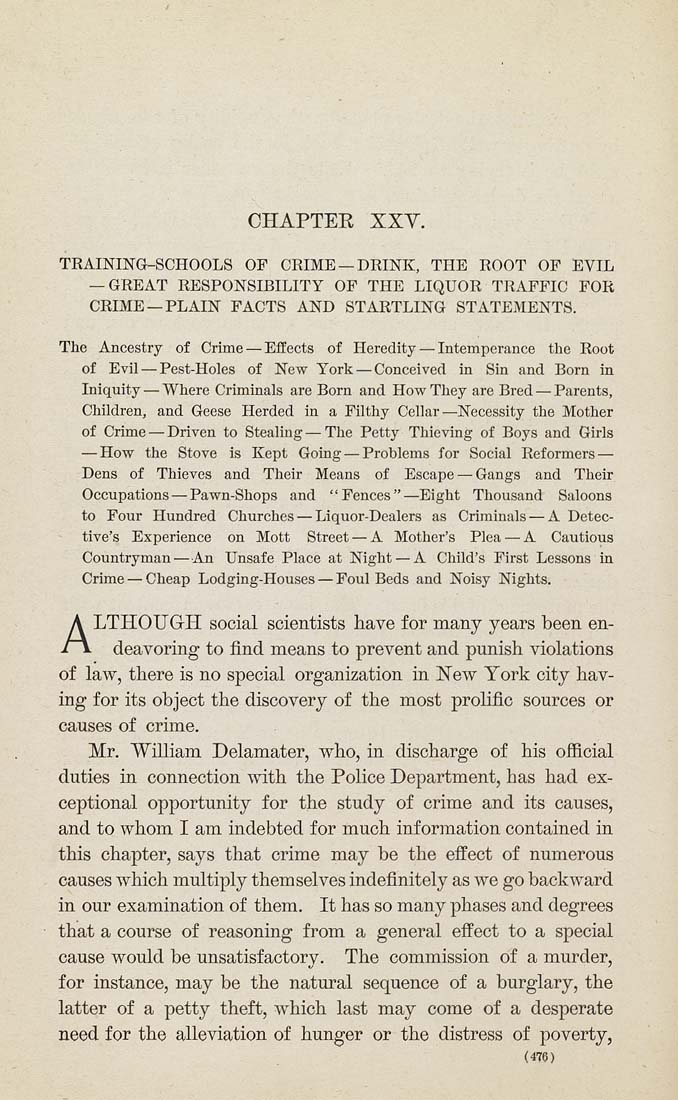CHAPTER XXV.
TRAINING-SCHOOLS OF CRIME-DRINK, THE ROOT OF EVIL
— GREAT RESPONSIBILITY OF THE LIQUOR THAFFIO FOR
CRIME —PLAIN FACTS AND STARTLING STATEMENTS.
The Ancestry of Crime — Effects of Heredity — Intemperance the Root
of Evil — Pest-Holes of New York — Conceived in Sin and Born in
Iniquity — Where Criminals are Born and How They are Bred — Parents,
Children, and Geese Herded in a Filthy Cellar—Necessity the Mother
of Crime — Driven to Stealing—The Petty Tliieving of Boys and Girls
— How the Stove is Kept Going — Problems for Social Reformers —
Dens of Thieves and Their Means of Escape — Gangs and Their
Occupations — Pawn-Shops and "Fences"—Eight Thousand Saloons
to Four Hundred Churches — Liquor-Dealers as Criminals — A Detec¬
tive's Experience on Mott Street — A Mother's Plea — A Cautious
Countryman—An Unsafe Place at Night — A Child's First Lessons in
Crime—Cheap Lodging-Houses — Foul Beds and Noisy Nights.
ALTHOUGH social scientists have for many years been en¬
deavoring to find means to prevent and punish violations
of law, there is no special organization in New York city hav¬
ing for its object the discovery of the most prolific sources or
causes of crime.
Mr. William Delamater, who, in discharge of his official
duties in connection Y'ith the Police Department, has had ex¬
ceptional opportunity for the study of crime and its causes,
and to whom I am indebted for much information contained in
this chapter, says that crime may be the effect of numerous
causes which multiply themselves indeflnitely as Y'e go backY'ard
in our examination of them. It has so many phases and degrees
that a course of reasoning from a general effect to a special
cause would be unsatisfactory. The commission of a murder,
for instance, may be the natural sequence of a burglary, the
latter of a petty theft, which last may come of a desperate
need for the alleviation of hunger or the distress of poverty,
|








